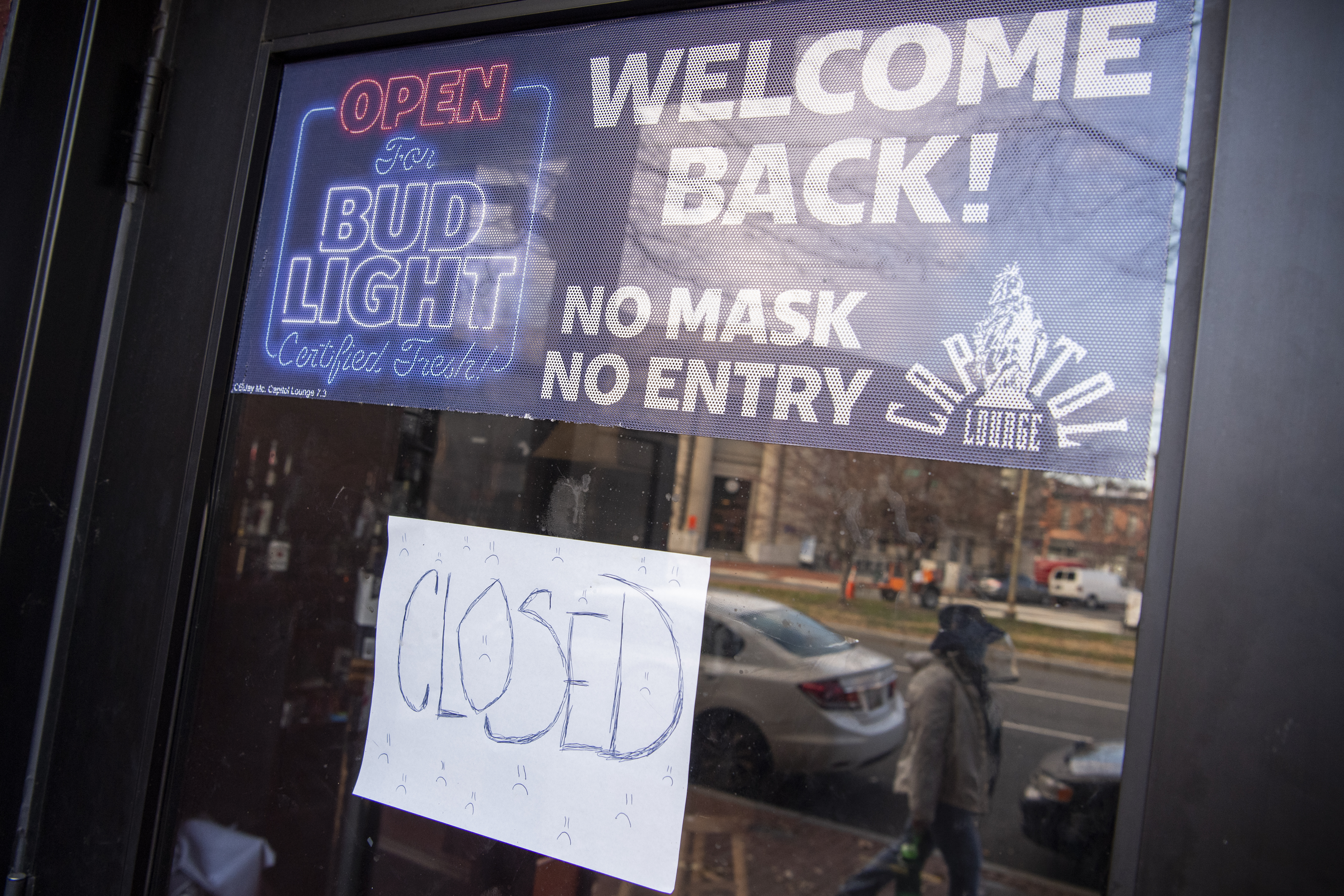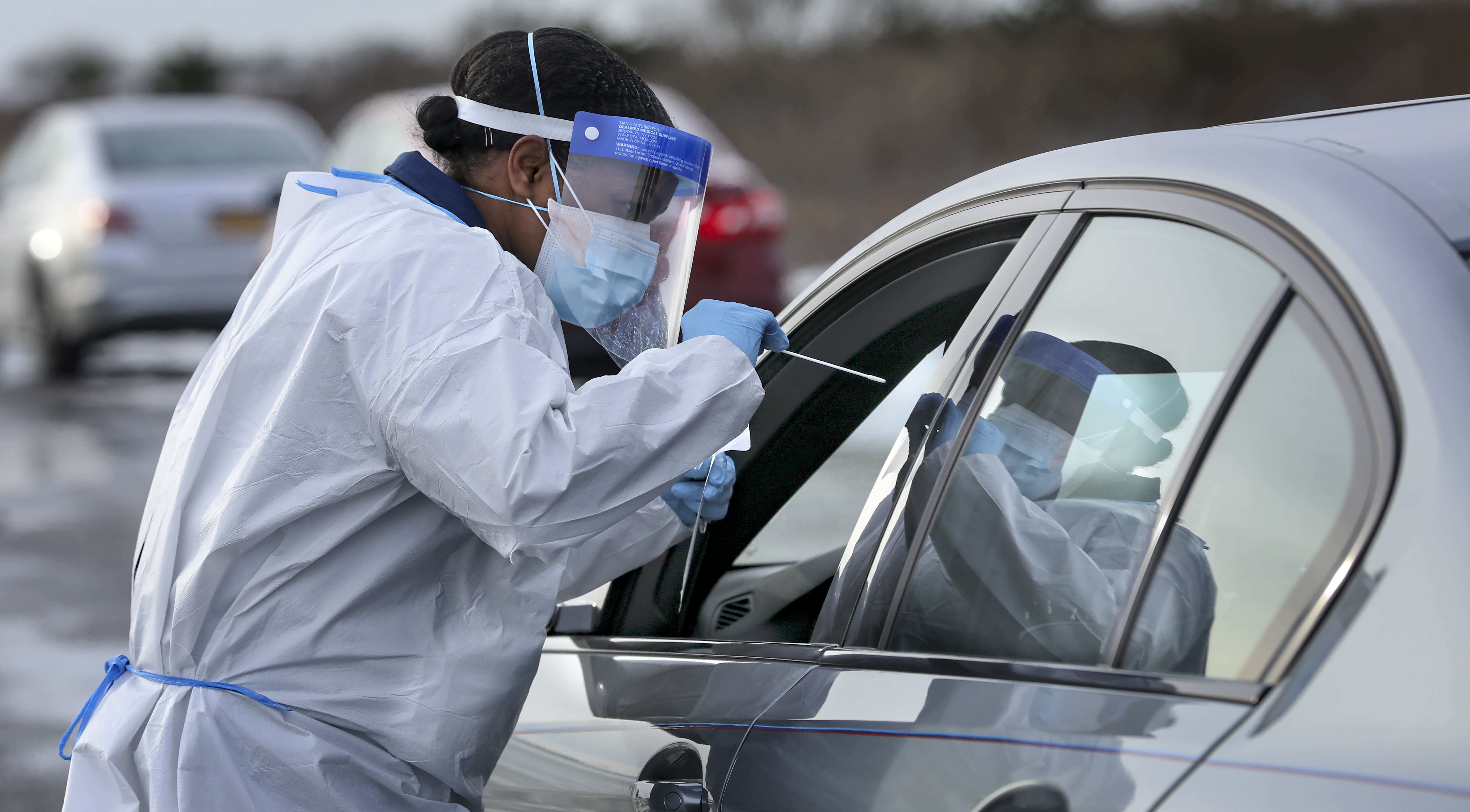It was two years ago when Val Arkoosh became one of the first official faces of the COVID-19 pandemic.
Arkoosh, chairwoman of the Montgomery County commissioners, started holding daily briefings on Zoom virtual conferences in March 2020 just as Pennsylvania's first coronavirus outbreak occurred in her county. She made the difficult decision to put the county on lockdown, the first in the state.
Arkoosh is also a doctor. In those first briefings, watched by frightened Montgomery County residents, she stood alone at a podium with charts of climbing case counts next to her, pleading for the public to social distance and wear a mask.
Looking back, she describes the last two years "as a very challenging time for me personally."
Get top local stories in Philly delivered to you every morning. >Sign up for NBC Philadelphia's News Headlines newsletter.
But she says something that happened this past weekend gives her hope for the future.
"We have this wonderful theater in Norristown called the Theatre Horizon. We got to see our first show in two years there on Sunday," Arkoosh said. "My husband and I both love to see shows. They require masks in the theater, which we are supportive of, and proof of vaccination. The show and the cast (of 'TJ Loves Sally 4 Ever') were terrific."
It's been a long adjustment period dealing with the COVID-19 pandemic, which on Friday turns two years old. On March 11, 2020, the World Health Organization declared the coronavirus a pandemic.
The world has changed in all types of ways, from how we dine out to how we hug to where we work. Everyone is a bit of a novice epidemiologist these days, more familiar then we're probably comfortable with when it comes to germs. Who even uses the word, germ, anymore? We talk in terms of viruses and bacteria.
There is also the toll we can see with our eyes, whether it was talking to scared elderly relatives through a window at the nursing home or hearing that Central Park in New York City and the Liacouras Center at Temple University in Philadelphia were turned into makeshift, emergency hospitals.
Since March 2020, more than 79 million cases have been confirmed in the United States and most epidemiologists think it's likely there were many more unconfirmed cases. More than 960,000 Americans have died.
Drexel University epidemiologist Michael LeVasseur said in an interview Thursday that the number of infections is likely much greater than the confirmed cases, "probably even by orders of magnitude."
LaVasseur has been studying the coronavirus since March 2020. He was one of the first experts to talk with NBC10 about how the pandemic could play out.
Not everything we worried about in the first, frantic days of wiping down groceries turned out to be valid.
Still, other concerns like whether COVID-19 traveled by aerosol was found to be true, with dire consequences. In addition to our gained collective knowledge of infectious diseases, LeVasseur thinks the past two years have also provided the public with valuable insights into vaccines.
But medical experts still struggle with identifying traits of coronavirus variants, and how to convey knowledge of invisible viruses to the public.
"It’s been a constant game of understanding what our limitations of knowledge are as scientists and what the public expects," LeVasseur said Thursday.
As public health officials and virologists started to solve some of the medical riddles by the summer of 2020, the focus shifted to the mental health toll on workers, parents, children, nurses and others who beared a particularly heavy brunt of the pandemic.
Masking in schools turned into hundreds of legal battles across Pennsylvania and the rest of the country. Working from home indirectly led to what economists now call "The Great Resignation."
Americans' work-life balance was shaken up, and is being reimagined.
In a glass-half-full view of people's outlook, a poll released Thursday found that employees are happier with their work-life balance than before COVID struck.
Nearly seven in 10 people polled by Qualtrics, a business software management company, say they have grown closer to family members over the past two years. About 9 out of 10 people who have kids and have been working remotely, say their kids are happier when their parents are working from home.
The picture painted by the survey of workers' overall mental health is a bit cloudier.
The people polled who say they are better off is exactly the same as the people who say they are worse off than before the pandemic: 31%, according to the survey.
"It’s clear that the past two years have brought lasting change to work-life for American employees,“ head of employee experience advisory services at Qualtrics, Benjamin Granger, said. “As we enter a new phase of COVID, where measures like remote work and social distancing may become optional, it’s time for us to take stock of what we’ve learned so we can be intentional about what changes from the pandemic are worth keeping and which should be discarded. It’s critical that leaders don’t forget how flexibility and new ways of working have made life better for employees.”
It's also important not to forget what healthcare shortcomings were revealed by the pandemic, Arkoosh said.
That includes being better prepared for the next global health crisis and becoming more self-reliant as a country, she said.
"As I look forward, I hope to help solve some of the real challenges we experienced during the pandemic. I want to improve the public health infrastructure. We need new IT systems and improvements to modernize our public health departments," Arkoosh said. "And we need to start making what we need in a emergency in this country."
She think Montgomery County is ready to move forward into year three with confidence that the toughest part of the pandemic is behind us.
"It's nothing short of a miracle how effective these vaccines have been. It has allowed us to move away from the prevention of transmission to the prevention of serious infection," Arkoosh said. "We’ve been able to shift the goals and the consequence of that is people can take the masks off. We know people are going to get minor cases. I had a minor case myself, thank God. Now, our focus is, 'Let’s prevent serious infections.' That’s how we move forward."



